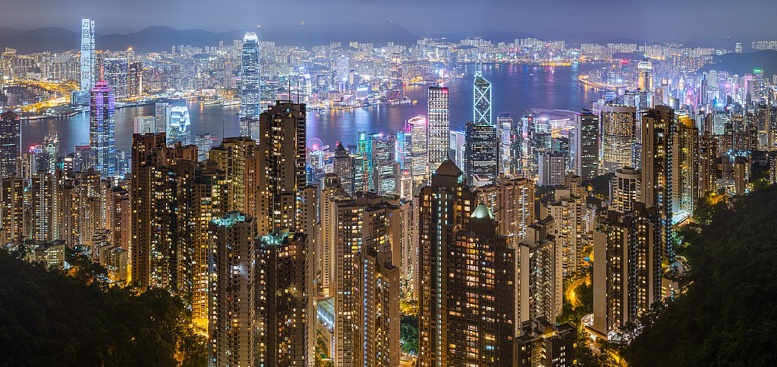Hong Kong has banned CBD, adopting harsh criminal punishment aligned with China’s zero-tolerance policy which led to a ban on the mainland last year.
The new policy, approved last October and which took effect Feb. 1, categorizes CBD as a “dangerous drug” – a designation that puts it at the same level as heroin, cocaine, and methamphetamine. Under the new law, the possession and consumption of CBD are punishable by seven years imprisonment and a fine of maximum 1 million Hong Kong dollars ($127,607). Manufacturing, importing, or exporting CBD can mean a life sentence.
The government warned travelers not to try buying CBD products in Hong Kong or bring them in, under threat of penalty.
Down China’s path
China last year similarly banned the use of CBD in cosmetic products, a move that analysts said was rooted in revived “anti-drug” education initiatives which view the popularization of beauty products based on cannabis as clashing with government policies aimed at Chinese youth.
The ban was placed against using hemp flowers, seed oil and extracts in cosmetics – which had previously been the only CBD-containing products legal to sell to Chinese consumers.
Chinese authorities said dependable THC tests to assure products are under the national limit of 0.3% are not widely available, and that CBD can easily be replaced by other cosmetic ingredients already well-known to consumers, in justifying the ban.
Hong Kong authorities, citing safety concerns, say they fear CBD would be converted into delta-8 THC, a synthetic form of the psychoactive element in cannabis, similar but milder than the more common delta-9 THC derived from marijuana plants. Delta-8 THC has been blamed for at least one death in the United States, and some lawmakers and other authorities have issued warnings over the products, which exist in a mostly unregulated market.
William Chui, president of the Society of Hospital Pharmacists of Hong Kong, said the ban is intended to prevent “illegal traders to convert CBD into THC with strong acid at home.”
Research & policy
Some studies have indicated CBD helps with anxiety, insomnia and chronic pain. One FDA-approved pharmaceutical-grade CBD product, Epidiolex, has proven effective in treating two forms of childhood epilepsy. But such authorities as the Harvard Medical School have said more research on CBD’s benefits is needed.
The U.S. Food and Drug Administration (FDA) last month claimed it cannot set regulations for CBD without legislative guidance, and called on Congress to make a law that would guide specific federal rules. The food safety agency has also said that more research needs to be done to assess the effects of CBD.
In the EU, the European Union Court of Justice (ECJ) has ruled that CBD cannot be regarded as narcotic, and that CBD products should enjoy the same freedom of movement for goods between and among member states as other legal products. The EC further clarified that CBD “can be qualified as food.” EU member states are now in the process of aligning national laws to EC policy.
Exports markets eyed
The Hong Kong government said it collected about 80,000 CBD products – skin-care products, edible oils and health supplements – at special disposal boxes before the ban became active.
Hong Kong producers have said they will look to sell their products into such markets as Australia and New Zealand, and look for other opportunities throughout the Asia-Pacific. That’s what Chinese companies producing CBD have done as they have aggressively pushed into other Asian nations. Despite no sales at home, China is estimated to be supplying as much as one-third of the world’s CBD.

